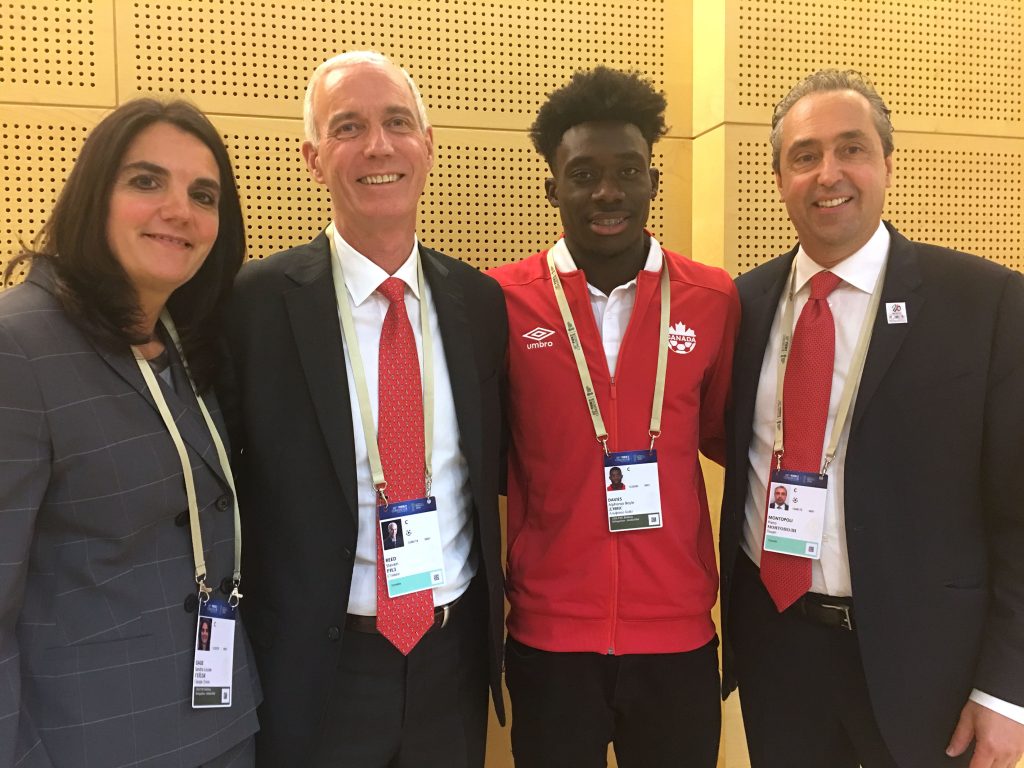
FIFA 2026
Welcoming the Beautiful Game to Canada
2026 will be a milestone sports year as Canada, the United States and Mexico host the FIFA World Cup. It’s the first time that men’s World Cup matches will be played in Canada, with Toronto (BMO Field), Montreal (Olympic Stadium) and Edmonton (Commonwealth Stadium) among the candidate host cities. Connie Jeske Crane spoke with Sandra Gage, chief marketing officer, Canada Soccer, as Canada prepares to host the event.
What strengths does Canada bring to hosting the world’s biggest single-event sporting competition?
I can only speak to Canada Soccer’s experience, and we certainly have a long history of hosting major international competitions in multiple cities. I would suggest that the inclusion of all stakeholders in the process, from the beginning, has been the key to the success of those events. We are probably the only single sport that’s hosted a major international competition from coast to coast, which we did in 2015 with the FIFA Women’s World Cup.
How well-prepared are Toronto, Montreal and Edmonton to host?
All three Canadian cities are previous FIFA World Cup host cities for various competitions, so there’s a strong volunteer base in each city. In 2015, we actually did not have volunteers from outside of Canada. What we do in 2026 I can’t tell you yet, but we’ll look to continue to leave a legacy of volunteer development.
What other legacies do you expect?
We already have existing infrastructure to host—the number of stadiums available to us—so infrastructure is not the focus. But definitely the economic impact will be one. In Canada we also see it as the further growth of the men’s game, a further alignment of our men’s program not only with our provincial and territorial associations but also with professional soccer in our country. That would include the three MLS teams that currently exist and the new Canadian Premier League launching in the spring of 2019.
What new challenges do you foresee?
Three countries hosting is the biggest change from a Canada Soccer perspective. When we hosted this competition in 2015, we worked very closely with the federal government on security, and would continue to do that. Security would not only be at a federal level, but the governments of all three countries will be working together. Technology is another obvious challenge, and fan engagement will be very different than what we did in 2015.
With three countries hosting, will we see special arrangements for cross-border travel?
It’s something we talked about through the bid process. The three levels of government will work towards a solution. The concept of a fan ID, which was used in Russia 2018, will be explored across the three countries and there will be a working group established.
When will FIFA finalize the 16 host cities?
It’s expected to be sometime in 2020 or 2021. At Canada Soccer, we’re extremely excited to learn more about the next steps from FIFA, and in continuing our collaboration with our other two member associations. We know what a game changer this competition will be, not only for our sport but for all sports in Canada.
FIFA 2026
By the Numbers
16 host cities throughout North America to be selected from 23 candidate cities
32 days of World Cup action in June/July 2026
48 teams to compete (up from 32 teams in Russia 2018)
80 matches proposed: 10 in Canada, 10 in Mexico and 60 in the U.S.
3,000 jobs projected for Canada
3.4 billion potential TV viewers
$30 to $55 million in estimated costs for Canadian
host cities
$560 million in new economic activity expected for Canada
$5.3 billion in new economic activity expected for North America



